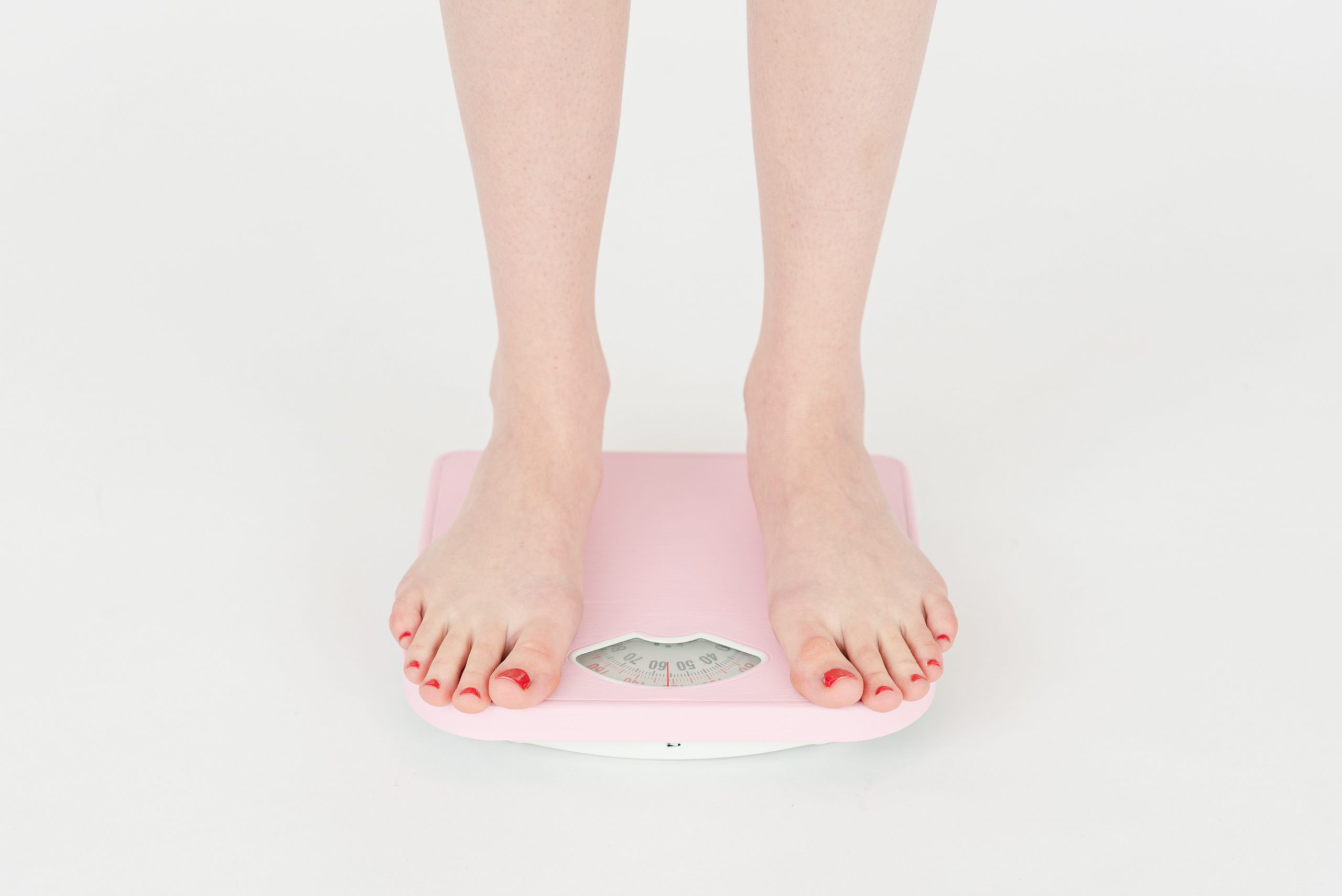Hormone Therapy for Weight Loss: What You Need to Know
In the pursuit of achieving weight loss goals, individuals often encounter various challenges. While diet and exercise are essential components of any weight loss journey, they may not always yield the desired results. This is where hormone therapy for weight loss comes into play, offering a promising avenue for individuals struggling with stubborn weight.

What is Hormone Therapy for Weight Loss?
Hormone therapy for weight loss involves the administration of specific hormones to regulate and optimize the body’s hormone levels. Hormones play a crucial role in controlling numerous bodily functions, including metabolism, appetite, and fat storage. When hormone imbalances occur, they can contribute to weight gain and make it challenging to shed excess pounds. By restoring hormonal balance through hormone therapy, individuals may experience improved weight management.
Key Hormones Involved in Weight Regulation
Several hormones influence weight management and can be targeted through hormone therapy. Let’s delve into some of the key hormones involved:
1. Leptin
Leptin is known as the “satiety hormone” and is produced by fat cells. It signals the brain when you have consumed enough food, promoting a feeling of fullness and reducing appetite. However, in some cases, leptin resistance can occur, leading to an impaired response to the hormone. Hormone therapy can address this resistance, aiding in appetite control and weight loss.
2. Thyroid Hormones
The thyroid gland produces hormones that regulate metabolism. When thyroid hormone levels are imbalanced, it can lead to weight fluctuations. Hormone therapy can optimize thyroid hormone levels, enhancing metabolic function and potentially facilitating weight loss.
3. Insulin
Insulin is crucial for regulating blood sugar levels. When insulin resistance develops, the body’s cells become less responsive to its effects, resulting in higher blood sugar levels and weight gain. Hormone therapy can help improve insulin sensitivity, thereby promoting weight loss and preventing further complications.
Hormone Therapies for Weight Loss
Below are some hormone therapies that have shown promise in facilitating weight loss
1. Growth Hormone (GH) Therapy
Growth hormone is responsible for cell regeneration, growth, and metabolism. GH therapy involves administering synthetic growth hormones to address deficiencies or imbalances. Studies have shown that GH therapy can improve body composition by reducing body fat and increasing lean muscle mass, leading to holistic weight loss.
2. Thyroid Hormone Replacement
When an underactive thyroid (hypothyroidism) is a contributing factor to weight gain, thyroid hormone replacement therapy may be prescribed. By providing the body with the necessary thyroid hormones, this therapy can restore metabolic function, increase energy levels, and support weight loss efforts.
3. Testosterone Replacement Therapy (TRT)
Low testosterone levels in both men and women can lead to weight gain and hinder weight loss efforts. TRT involves supplementing testosterone to optimize hormone levels. This therapy can enhance muscle mass, increase energy levels, and improve body composition, thereby aiding weight loss.
4. Peptide and Hormone Therapy for Weight Loss
Peptide therapy involves the use of small protein-like molecules, known as peptides, to regulate various bodily functions. Peptides can target specific hormones involved in weight regulation, appetite control, and metabolism. Combined with hormone therapy, peptide therapy aims to optimize hormone levels and enhance weight loss efforts. It is essential to consult with a healthcare professional experienced in peptide and hormone therapy to determine the most suitable treatment plan for your needs.
5. Bioidentical Hormone Therapy for Weight Loss
Bioidentical hormone therapy utilizes hormones that are chemically identical to those naturally produced in the body. This approach involves personalized hormone replacement using bioidentical hormones, which can help restore hormonal balance and alleviate symptoms associated with hormone deficiencies or imbalances. By improving hormone levels, bioidentical hormone therapy may support weight loss goals.
5. Natural Hormone Therapy for Weight Loss
Natural hormone therapy for weight loss focuses on utilizing naturally occurring substances to support hormonal balance and facilitate weight management. This approach often involves lifestyle modifications, such as dietary adjustments, stress reduction techniques, and targeted supplements to support hormone enhancement. By addressing hormone imbalances naturally, individuals may experience improved weight loss outcomes.
Best Hormone Therapy for Weight Loss
Determining the best hormone therapy for weight loss depends on individual needs and preferences. Factors to consider include the type of hormone therapy (natural, peptide, bioidentical), treatment approach, qualifications of healthcare professionals, and success rates indicated by patient reviews. Reading reviews from reputable sources and seeking recommendations from trusted healthcare providers can help guide your decision-making process.
Hormone-Specific Side Effects
a. Growth Hormone Therapy: Possible side effects of growth hormone therapy may include joint pain, fluid retention, carpal tunnel syndrome, and an increased risk of developing diabetes. However, these side effects are typically rare and can be minimized with proper medical supervision.
b. Thyroid Hormone Replacement: When undergoing thyroid hormone replacement therapy, some individuals may experience temporary hair loss, changes in appetite, heart palpitations, or mild tremors. Adjusting the dosage under medical supervision can often alleviate these side effects.
c. Testosterone Replacement Therapy (TRT): Potential side effects of TRT may include acne, fluid retention, increased red blood cell production, and mood swings. Close monitoring by a healthcare professional can help manage these side effects and optimize treatment.
General Side Effects of Hormonal Therapy for Weight Loss
a. Hormonal Imbalance: Hormone therapy aims to restore hormonal balance; however, improper dosing or monitoring can lead to new hormone imbalances. It is crucial to work with a qualified healthcare professional to ensure the appropriate hormone levels are achieved.
b. Allergic Reactions: Some individuals may experience allergic reactions to hormone therapies, characterized by symptoms such as rash, itching, swelling, or difficulty breathing. Prompt medical attention is necessary if any allergic reactions occur.
c. Overcorrection of Hormone Levels: Overcorrecting hormone levels can result in undesired effects. Proper monitoring and gradual adjustments of hormone therapy are important to avoid sudden hormonal fluctuations.
Individual Variations
Each person responds uniquely to hormone therapy, and side effects can vary. Factors such as individual health, medical history, and hormone levels play a role in determining potential side effects. Working closely with a healthcare professional who specializes in hormone therapy is essential to ensure personalized treatment and minimize risks.
Safety Considerations
a. Qualified Healthcare Professionals: Hormone therapy should always be supervised by qualified healthcare professionals with expertise in hormone optimization. They will monitor your progress, adjust dosages as needed, and ensure your safety throughout the treatment.
b. Regular Monitoring: Regular follow-up appointments and hormone level monitoring are crucial to evaluate treatment effectiveness and identify any potential side effects. Open communication with your healthcare provider is essential to address any concerns or issues promptly.
c. Individualized Approach: Hormone therapy should be tailored to your specific needs and health profile. A thorough evaluation of hormone levels, medical history, and lifestyle factors will help determine the most appropriate treatment plan for you.
Hormone Therapy for Weight Loss Near Me
When seeking hormone therapy for weight loss, finding a reputable and conveniently located healthcare provider is important. Carrying out a local search using terms like “hormone therapy for weight loss near me” can help identify specialists or clinics in your area. It is crucial to thoroughly research and evaluate the credentials, experience, and patient reviews of potential providers to ensure high-quality care.
Frequently Asked Questions About Hormonal Therapy For Weight Loss
Q: How does HT help with weight loss?
A: There are a few ways that HT may help with weight loss. First, HT can help to increase metabolism. This means that you burn more calories at rest, which can help you to lose weight over time. Second, HT can help to reduce appetite. This can make it easier to stick to a healthy diet and lose weight. Third, HT can help to reduce belly fat. Belly fat is a type of fat that is associated with an increased risk of health problems such as heart disease, stroke, and diabetes.
Q: What are the risks of HT?
A: HT is not without risks. Some of the potential side effects of HT include breast cancer, stroke, blood clots, heart disease, liver problems, and memory problems.
Q: Who is a good candidate for HT?
A: HT may be a good option for women who are experiencing menopausal symptoms such as hot flashes, night sweats, and vaginal dryness. HT may also be a good option for women who are overweight or obese and have difficulty losing weight.
Q: How long should I take HT?
A: The length of time that you should take HT will depend on your individual needs. Some women may only need to take HT for a short period of time to relieve menopausal symptoms. Others may need to take HT for a longer period of time to help with weight loss.
Q: What are the alternatives to HT?
A: There are a number of alternatives to HT that may help with weight loss. These include exercise, diet, weight loss medication, and bariatric surgery.
Q: Can hormone therapy help you lose weight?
Hormone therapy (HT) may help some people lose weight, especially women who are overweight or obese and are experiencing menopausal symptoms. HT can help to increase metabolism, reduce appetite, and reduce belly fat. However, HT is not a magic bullet for weight loss, and it is important to combine it with other healthy lifestyle changes such as diet and exercise.
Q: Which hormone medication helps you lose weight?
Several hormone medications can aid in weight loss depending on the specific hormonal imbalances present. For example:
1. Growth hormone therapy can enhance fat metabolism and support weight loss.
2. Thyroid hormone replacement can help regulate metabolism and promote weight loss in individuals with hypothyroidism.
3. Testosterone replacement therapy (TRT) may increase muscle mass, boost metabolism, and aid in weight loss, particularly in men with low testosterone levels.
4. Leptin replacement therapy might benefit individuals with leptin deficiency by improving appetite regulation and reducing overeating.
Q: Which hormone replacement therapy is best for weight loss?
The most suitable hormone replacement therapy for weight loss depends on individual needs and hormone imbalances. Bioidentical hormone therapy (BHT) is often considered a favorable option as it uses hormones identical to those naturally produced in the body. BHT can restore hormonal balance, improve metabolism, and support weight loss. However, the best therapy will be determined through consultation with a qualified healthcare professional who can evaluate your specific hormone levels and recommend an appropriate treatment plan.
Q: How long does it take to lose weight with hormone therapy?
The time it takes to see weight loss results with hormone therapy varies from person to person. It depends on various factors such as individual metabolism, hormone imbalances, lifestyle habits, and adherence to treatment protocols. Some individuals may experience noticeable changes within a few weeks, while others may require several months to achieve significant weight loss. Consistency, along with a comprehensive approach including dietary modifications, exercise, and lifestyle changes, can contribute to more effective and sustainable weight loss outcomes with hormone therapy.
Q: Who is not a good candidate for ketamine therapy?
A: The following group of persons is not a good candidate for ketamine therapy:
1. People with a history of psychosis or schizophrenia. Ketamine can worsen these conditions.
2. People with uncontrolled high blood pressure or other heart conditions. Ketamine can raise blood pressure and heart rate.
3. People with glaucoma. Ketamine can increase eye pressure.
4. People with active internal bleeding. Ketamine can increase bleeding risk.
5. People who are pregnant or breastfeeding. There is limited safety data on ketamine use during pregnancy and breastfeeding.
6. People who have had an allergic reaction to ketamine or other dissociative anesthetics.
- People under the age of 18. Ketamine therapy is not FDA-approved for use in children under the age of 18.
Conclusion
Hormone therapy for weight loss offers a promising approach to addressing weight management challenges, particularly for individuals with hormonal imbalances. By targeting specific hormones involved in weight regulation, hormone therapy can restore balance and optimize metabolic function, thereby supporting weight loss efforts.
In addition, it is important to consult with a qualified healthcare professional who specializes in hormone therapy to determine the most suitable approach for your individual needs.





